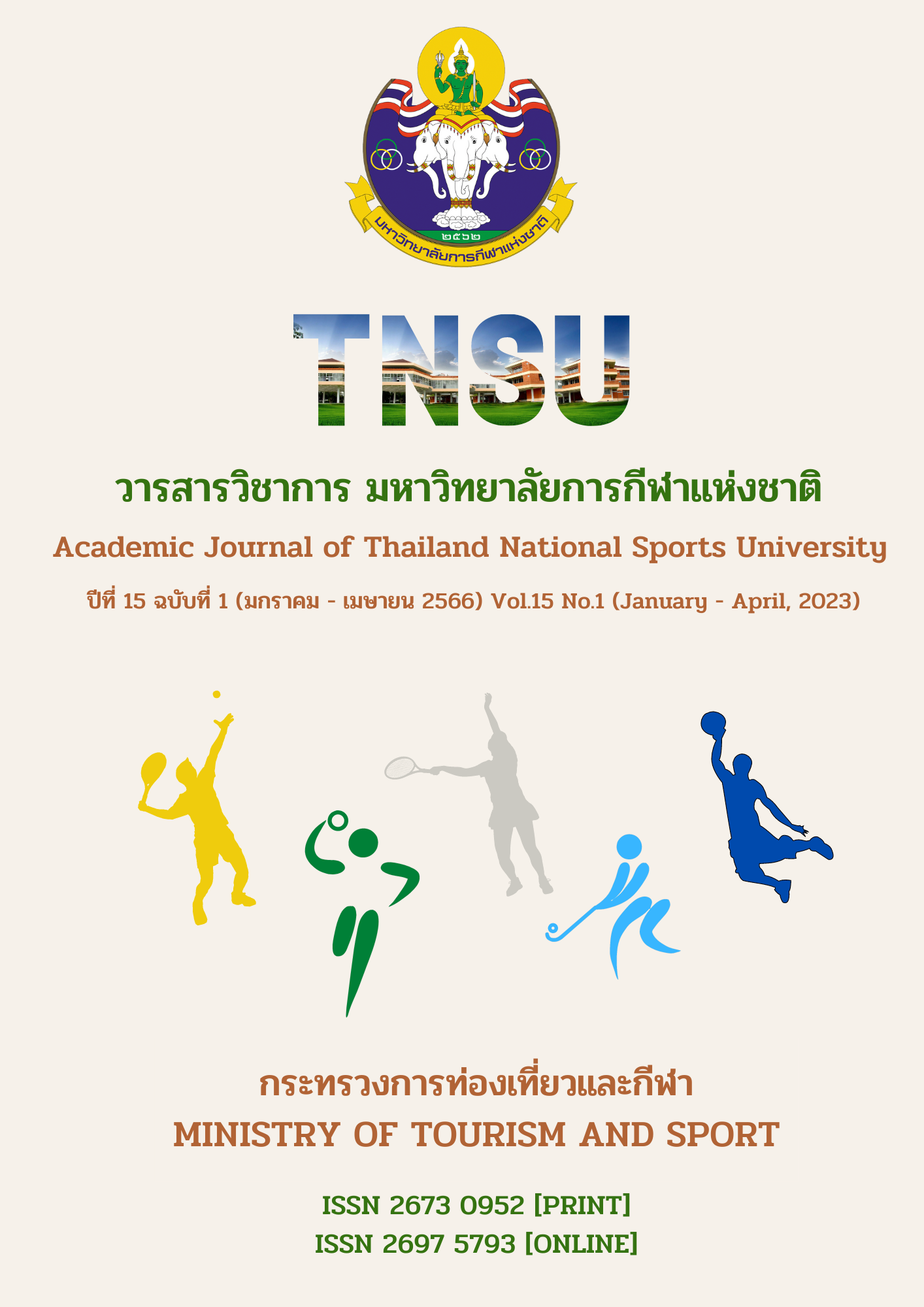DEVELOPMENT OF HEALTH EDUCATION LEARNING USING PROBLEM - BASED APPROACH AND SOCRATIC QUESTIONING TO ENHANCE LEARNING ACHIEVEMENT AND CREATIVE PROBLEM SOLVING OF SECONDARY SCHOOL STUDENTS
Main Article Content
Abstract
Purposes: To compare mean scores of learning achievement and creative problem solving before and after implementation of an experimental group and a control group, and to compare the mean scores of learning achievement and creative problem solving after implementation between the experimental group students and the control group students. Method: The subject was 60 tenth grade students, divided equally into two groups: 30 of the experimental group students were assigned to study under the health education learning management using the Problem - Based Approach and Socratic Questing and 30 control group students were assigned to study with the conventional teaching method. The research instruments were comprised of 8 health education lesson plans using Problem - Based Approach and Socratic with an IOC of 0.98 and the data collection instruments included learning achievements in the area of knowledge, attitude, practice test and creative problem solving test with an IOC of 0.89, 1.0, 1.0 and 1.0, reliabilities of 0.94, 0.95, 0.88 and 0.93. The duration of the experiment was 8 weeks. The data were analyzed by mean, standard deviation and t - test. Results:The research findings were as follows: The mean score of learning achievement in the area of knowledge, attitude, practice and creative problem solving of the experimental group students after learning were significantly higher than that before learning at .05 level and the mean scores of the learning achievement in the area of knowledge attitude, practice and creative problem solving of the experimental group students after learning were significantly higher than that of the control group students at .05 level. Conclusion: Health education learning management using the Problem - Based Approach and Socratic Questioning effect on learning achievement and creative problem solving of tenth grade students were higher than health education learning management with the conventional teaching method.
Article Details

This work is licensed under a Creative Commons Attribution-NonCommercial-NoDerivatives 4.0 International License.
The published article is a copyright of the Academic Journal of Thailand National Sports University. The passage appeared in each article in this academic journal is a perspective of each author which is not related to the journal. Each author is required to be responsible for all components of his/her own article. If there are any mistakes, each author must be responsible for those mistakes on his/her own.
References
Bloom, J., & Krathwoh, D. (1956). Taxonomy of educational objective: The classification of educational goals by a committee of college and university examiners. Handbook I: Cognitive Domain. New York: Longmans, Green.
Chanisara Meshapatharahiran, (2020). Creative problem solving. IPST Magazine, 48(222), 24 – 27.
Chaiwat Surawichai. (2018). Socrates method. Retrieved from https://siamrath.co.th/n/34840
Krissanu Pathanang, & Sujint Anguravirutt. (2018). Development of learning activities using a problem - based learning and socratic questioning technique to promote critical thinking in Mathayomsuksa 4 students. Faculty of Humanities and Social Sciences, Maha Sarakham University, 37(2), 57 - 67.
Ministry of Education. (2021). Policies and focuses of the Ministry of Education fiscal year 2021. Retrieved from https://moe360.blog/2021/06/30/education-management-policy/
Norarat Fanchian. (2019). Problem – based Learning: PBL. Retrieved from https://www.trueplookpanya.com/blog/content /77414/-teaartedu-teaart-teamet-
Paradee Kambhu Na Ayudhaya. (2017). A study on creative problem solving and creativity in gifted children in fourth - sixth grade. Journal of Educational Research Faculty of Education Srinakharinwirot University, 11(2), 123 – 135.
Pranee Lambensa. (2016). Measuring and evaluating studies. Sahamit Print Development.
Roger, D. Jensen Jr. (2015). The effectiveness of the socratic method in developing critical thinking skills in English (Master’s thesis), Grace University. Retrieved from https://files.eric.ed.gov/fulltext/ED557162.pdf
Sirichai Kanjanawasee. (2013). Classical Test Theory (7th ed.). Bangkok: Chulalongkorn University Press.
Subin Chaiya. (2019). The developing lifelong learning skills of students in the 21st century. Journal of Education, Faculty of Education, Srinakharinwirot University, 20(1), 168 – 180.
Suvitida Jarungkiatkul. (2018). The twenty - first century skills. Retrieved from https://www.cpmeiji.com/meijitensai/Content/detail/66054/0
Teerapong Kaen – in. (2011). Socratic method of teaching. Journal of Education, Faculty of Education, Prince of Songkla University, 22(2), 156 – 166.
Treffinger, D. J., Young, G. C., Selby, E. C., & Shepardson, C. (2002). Assessing creativity: A guide for education. The National Research Center on the Gifted and Talented.
Wipornphan Srisutham. (2019). The development of student’ creative problem solving and learning achievement of 10th grade students by creativity based learning approach (Master’s thesis), Rajabhat Maha Sarakham University.
Wichuda Wongcharoen. (2018). Learning provision using problem-based learning with augmented reality technology to develop analytical and problem-solving thinking skills for Mathayom suksa IV students (Master’s thesis), Dhurakij Pundit University.


